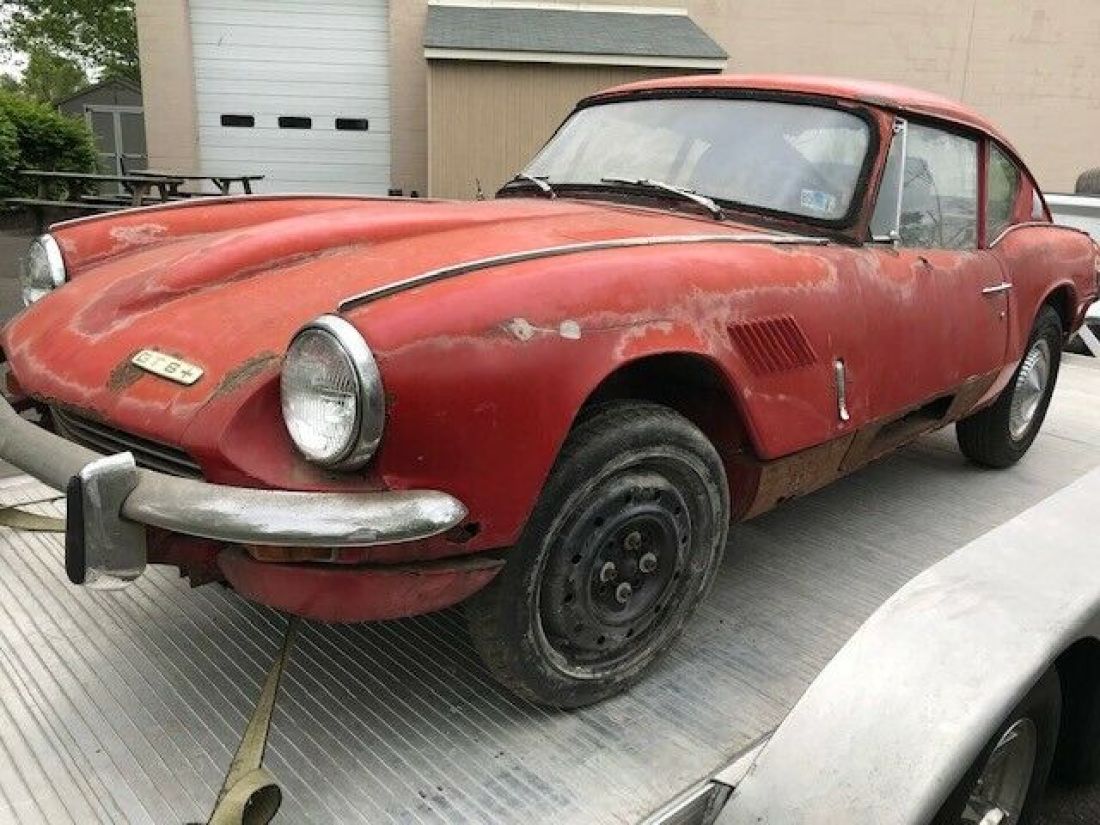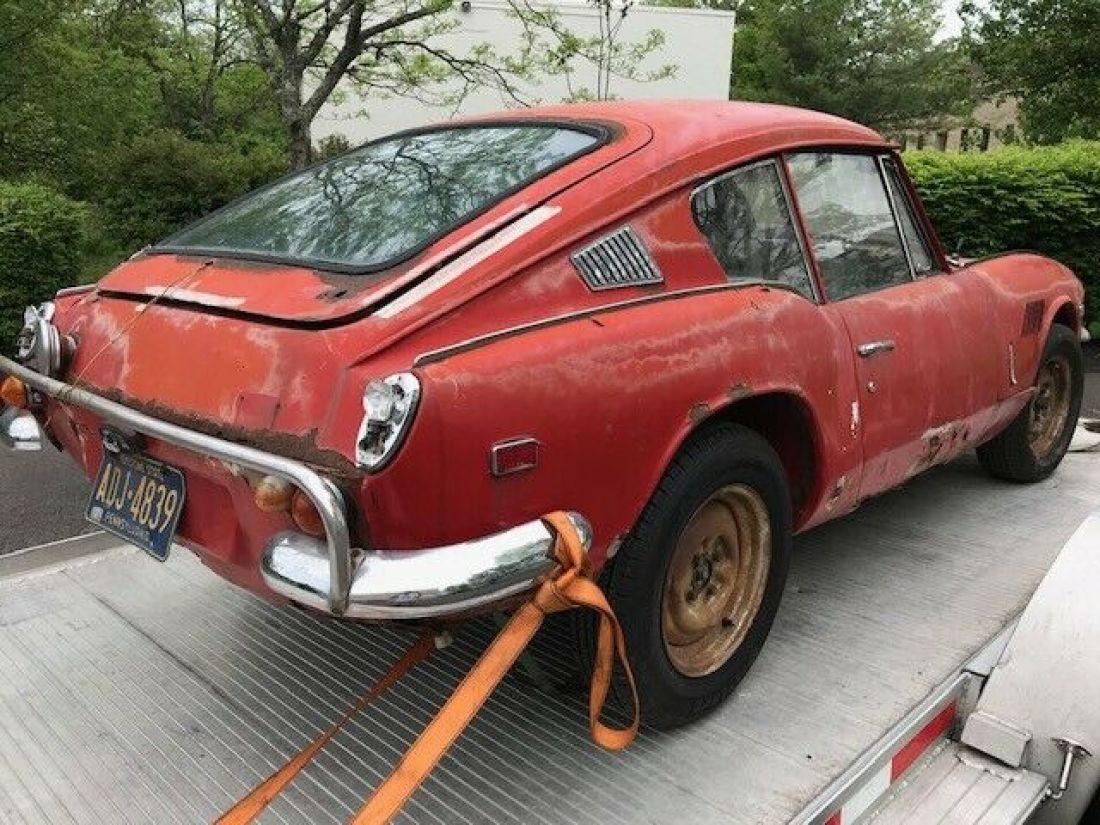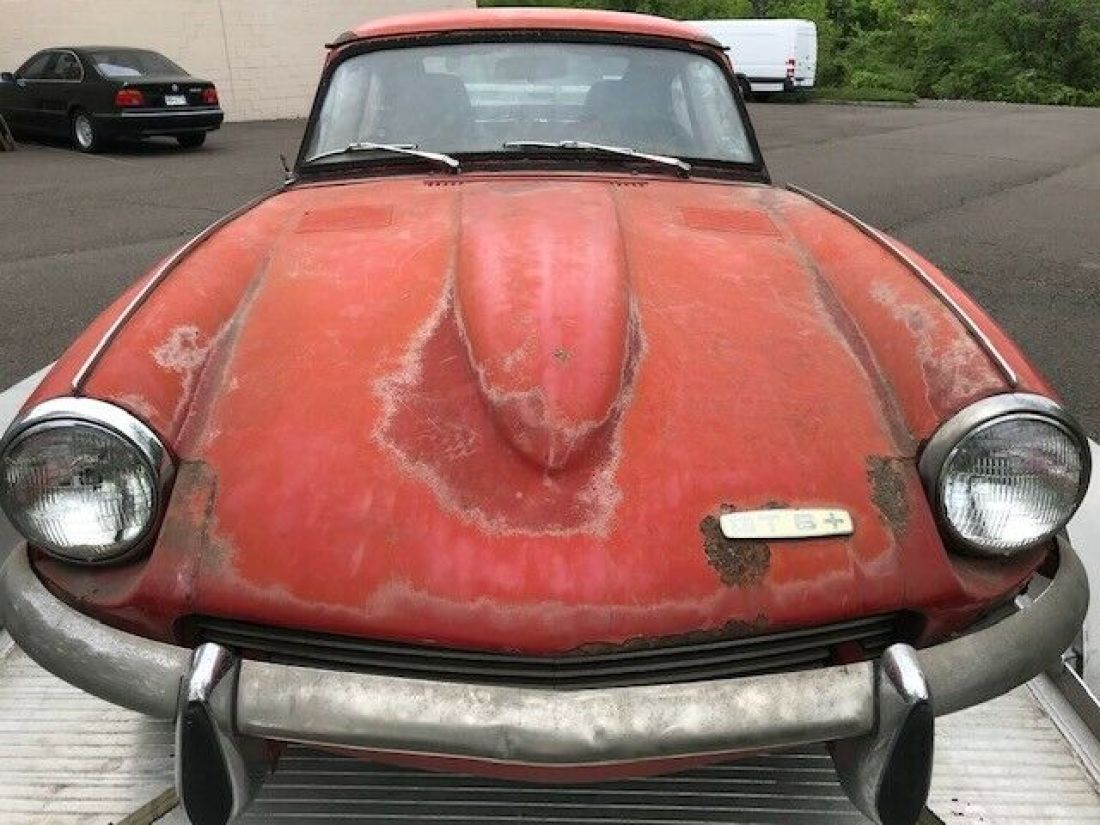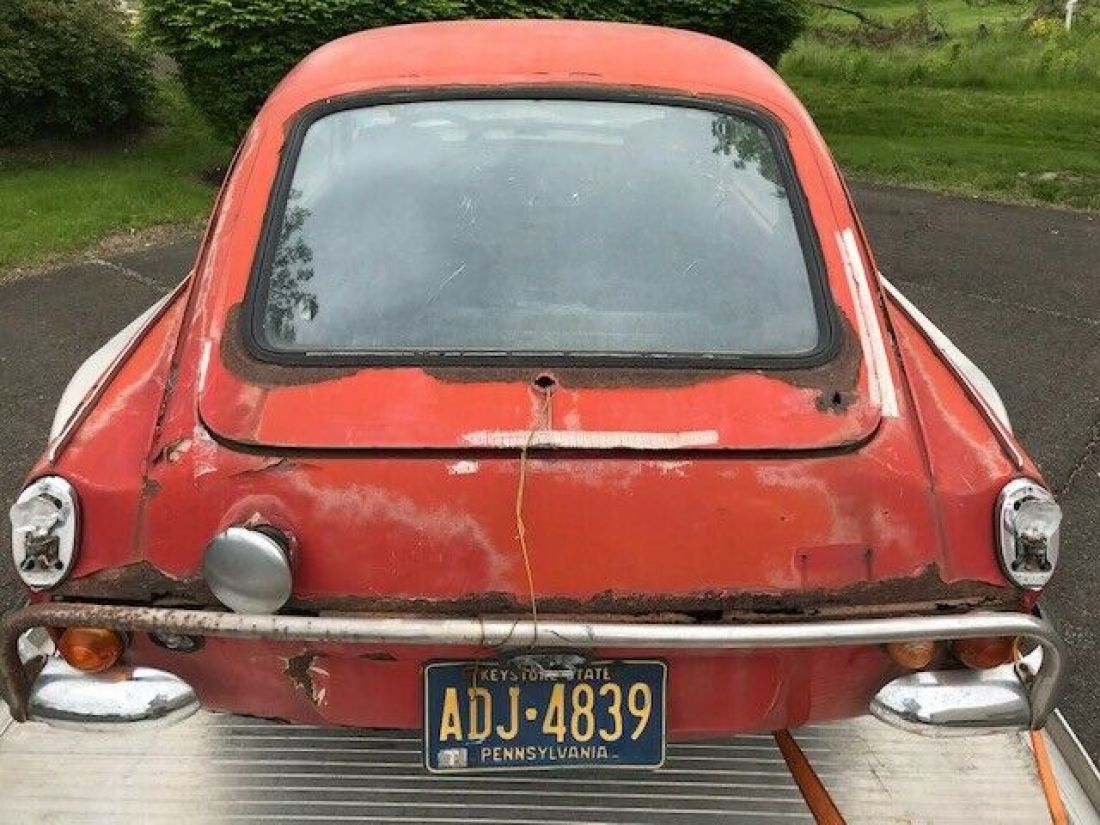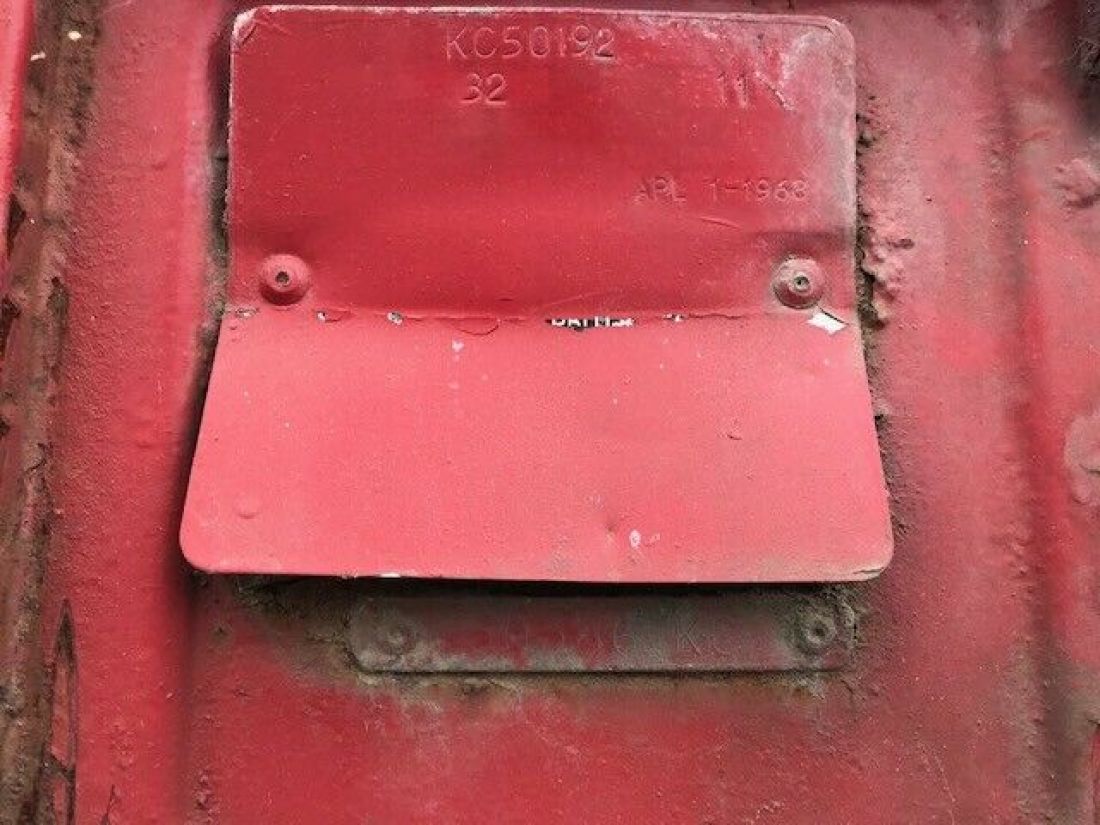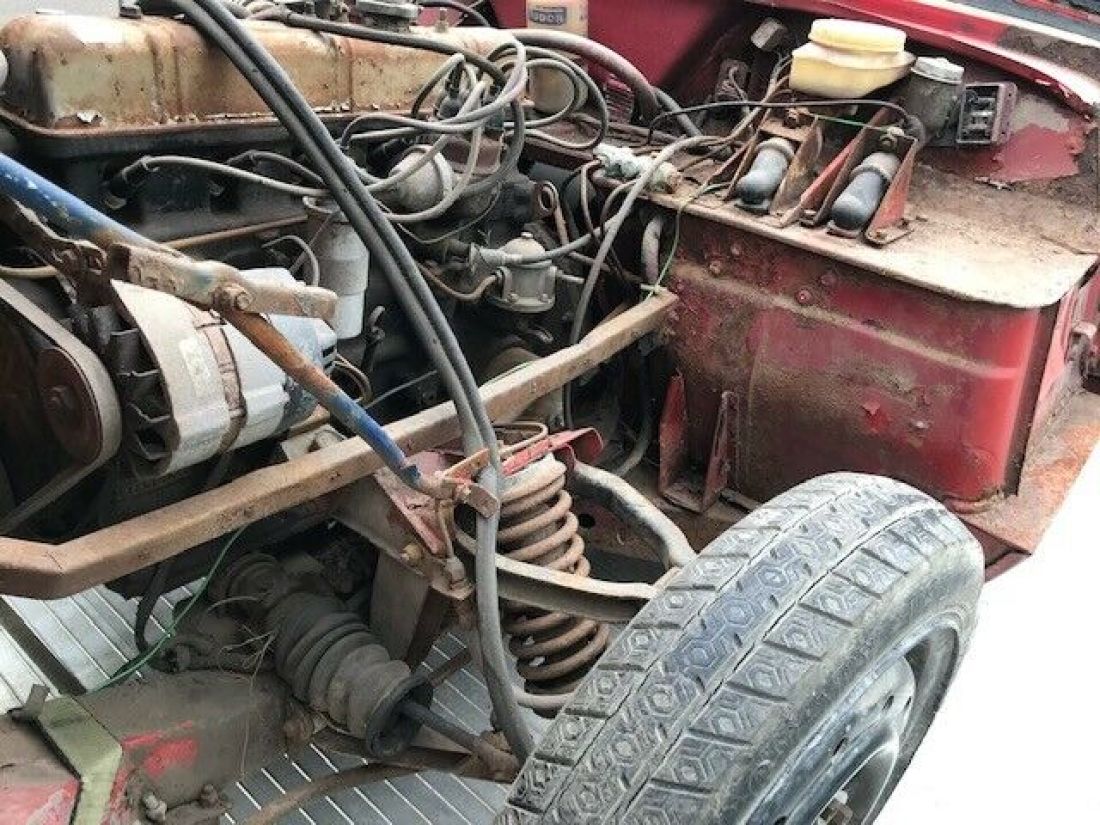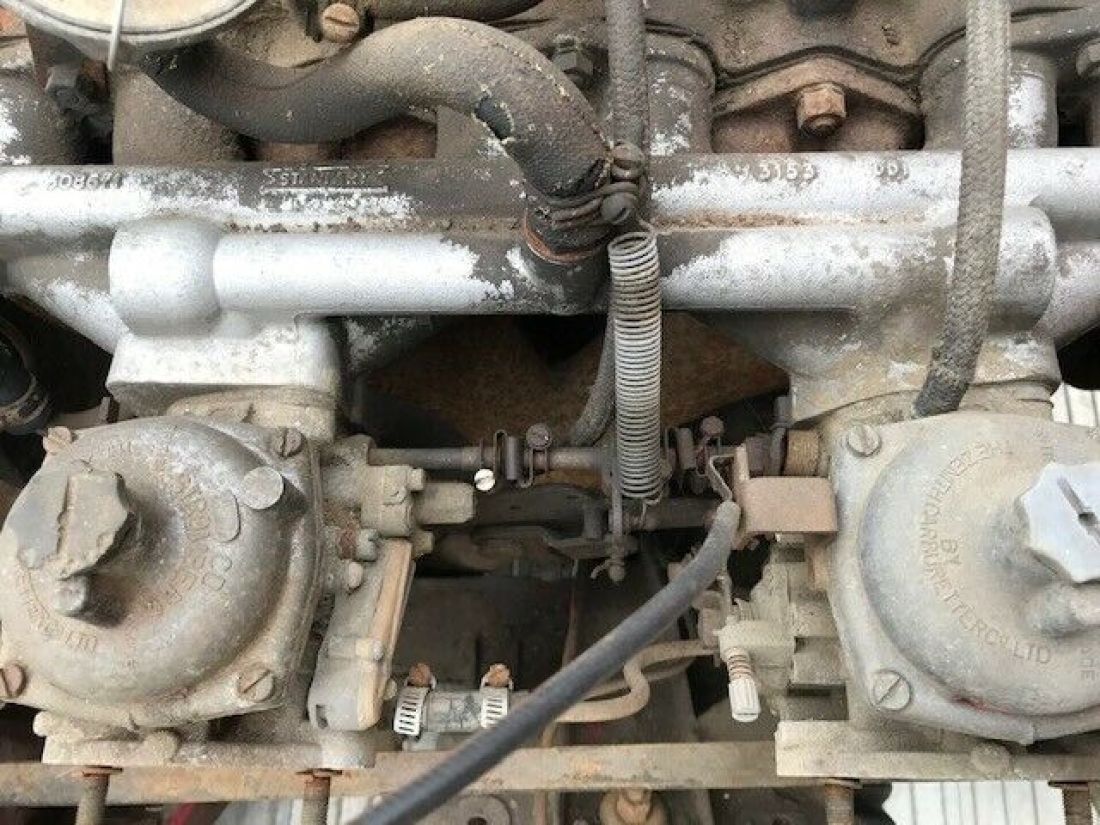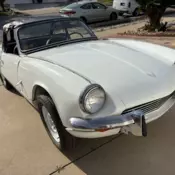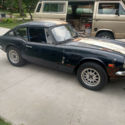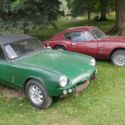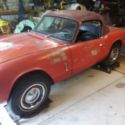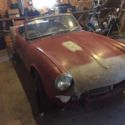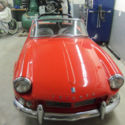1968 TRIUMPH GT6+ plus COUPE 2 door SPITFIRE MKII roller w/ 2.0L I6 and gear box
| Make: | Triumph |
| Model: | GT6 |
| SubModel: | Spitfire Mk2 |
| Type: | Coupe |
| Year: | 1968 |
| Mileage: | 1 |
| VIN: | 50386KC |
| Color: | Red |
| Cylinders: | 6 |
| Fuel: | Gasoline |
| Transmission: | Manual |
| Drive type: | RWD |
| Interior color: | Black |
| Drive side: | Left-hand drive |
| Vehicle Title: | Rebuilt, Rebuildable & Reconstructed |
| Item location: | Montgomeryville, Pennsylvania, United States |
1968 Triumph GT6 Additional Info:
Ladies and Gentlemen…… Resto pros….. Classic lovers…... Barn finders …….. Gem seekers, whatever you call yourself and whoever you associate yourself with…………………
I present to you a
1968 TRIUMPH GT6+ ( plus ) 2-DOOR COUPE or also known as spitfire or MSK II ( 2 ) …… A piece of machinery from the past, a time traveled history.
A bit info from WIKIPEDIA, but those who know more firsthand about these, please free to share (thank you)
Development historyIn early 1963Giovanni Michelottiwas commissioned by Standard-Triumph to design aGTversion of their recently introducedSpitfire 4(also designed by Michelotti).[1]An unmodified Spitfire 4 was delivered to Michelotti's design studios in Italy and late in 1963 the prototype Spitfire GT4 was returned to England for evaluation. The styling of the vehicle was a success but the extra weight of the GT bodyshell resulted in extremely poor performance from the Spitfire's 1,147cc (70cuin)Standard SC engine, and plans for producing the Spitfire GT4 were shelved.
Michelotti's fastback design for the Spitfire GT4 prototype was adopted by the Triumph racing programme for the 1964 season, as it was deemed to provide an aerodynamic benefit over the standard Spitfire body shape. Fibreglass copies of the Spitfire GT4's fastback were grafted on to the race-modified Spitfires destined for competition. The Spitfire racing programme was successful,and in 1965 resulted in 13th overall and a 1st in class at the prestigious24 Hours of Le Mans(beating their main rivals, the MG Midgets). The Spitfire's competitive success and the continuing commercial success of the production vehicle led Triumph to re-evaluate its shelved plans for a GT version of the Spitfire. To overcome the lack of performance inherent in the heavier body style the Spitfire's4-cylinder enginewas replaced with the more powerful 2-litre (1998cc)Triumph inline 6originally derived from the SC and then in use in theTriumph Vitesse(which shared a similar chassis with the Spitfire andTriumph Herald). The car was further developed and refined and eventually launched as the Triumph GT6 (dropping the "Spitfire" prefix) to emphasise its GT styling and its 6-cylinder engine.
Contemporary Triumph marketing advertised the GT6 as being developed from the "race winning Le Mans Spitfires" to capitalize on their aesthetic similarities, whereas the Le Mans Spitfires and the GT6 were actually two entirely separate development programmes (the GT programme pre-dating the racing programme). However, the marketing spin was so successful that many people erroneously believed the Le Mans Spitfires to actually be GT6s.
GT6 Mk II (GT6+)Triumph realised that they needed to find an answer to the handling problem, if only to maintain their reputation in the U.S. Their response came with the 1969 model year, with the introduction of the GT6 Mk II, known in the States as the GT6+. The rear suspension was significantly re-engineered using reversed lower wishbones andRotoflexdriveshaft couplings, taming the handling and turning the Triumph into an MGB beater. The Vitesse was also modified, but the Spitfire had to wait until 1970 for any improvements to be made.
There were other changes for the Mk II; the front bumper was raised (in common with the Spitfire Mk 3) to conform to new crash regulations, necessitating a revised front end, and side vents were added to the front wings and rear pillars. Under the bonnet, the engine was the uprated Vitesse MkII unit developing 104bhp (78kW) with a new cylinder head, camshaft, and manifolds.[1]The major changes were altered valve timing and larger inlet valves, with an increase to the width of the head. Performance improved slightly to 107mph (172km/h), but perhaps more noteworthy the 0–60mph (97km/h) time dropped to 10 seconds.[1]The fuel economy was also improved to 25mpg‑imp(11L/100km; 21mpg‑US) average.[1]The interior was updated with a new dashboard and better ventilation, a two-speed heater fan and a black headlining.Overdriveremained a popular option for themanual transmissionwith the same specifications as the Mk I.
Now a bit about what I can tell you about this piece of history that you’re looking at.
All I can say is that it has great potentials, based on my mechanical / body work background/knowledge. I’ve spoken to couple local triumph owners and they’ve told me that many floor panels can be easily obtained on specific sites and other panels/parts are available through forums as well.
Lets start with the body / chassis
It is in decent shape. Even though the panels / sheet metal is “missing” entirely in some areas, but the frame and the actual structural carcass is absolutely there and very solid. I’d say 90-85% is still the original panels and not much has been touched or restored. The only part that I believe has been replaced/worked on at some point are the bottom of the doors and rocker panels. The entire car has enough material / structure / shape that even if those pieces will need replacement or renewed, you will have enough material to work with. The main frame rails and suspension parts held-up well and are solid. Please refer to the undercarriage shots for a better understanding and take a look at shots of both front wheel wells and see how well the suspension looks. Also see the front nose / hood and its shots from each angle and inner side of the hood and see how well its contours are.
Interior have seen better days but the seats are there and some previous leather templates are also inside for new pieces to be traced and cut
Engine and manual transmission
Engine turns over and I’m pretty sure has some compression. Here is how I came to that conclusion. As I was moving it on and off the trailer and around the property, it was in gear and with it being engaged in the gear, the car was slightly hopping as you would expect from a manual equipped vehicle. When the clutch would be depressed, the car rolled free, like in neutral.
Please be open minded, this car does have hole in its floor panel, and body panels as well. It does rolls and engine seems to be loose as I’ve stated above. Manual transmission does shifts and clutch seems to hold when in gear.
I hope I gave the description as well to my knowledge as I possibly could, but those who know every nut and bolt on these history pieces, please advise me on what to look for and I will gladly do so and provide updates.
THE CAR WILL COME WITH
BILL OF SALE ONLY…… ASK YOUR LOCAL DMV ON HOW THAT WORKS AS FAR AS GETTING THIS TYPE OF A VEHICLE REGISTED AND INSURED ONCE IT’S ROAD WORTHY.
FOR MORE INFORMATION / QUESTIONS / CONCERNS AND ADDITONAL PICTURES, PLEASE FEEL FREE TO CALL ME DIRECT
I WILL INCLUDE A 50 MILE RADIUS DELIVERY FOR FREE AND OTHER DELIVERY OPTIONS CAN BE DISCUSSED AS WELL. I DO HAVE A CAR HAULER THAT I CAN GET MY HANDS ON AND NOW A DAYS HAVE SOME FREE TIME ON MY HANDS, SO FURTHER DELIVERIES WITH PAY CAN BE DISCUSSED. MY LOCATION ZIP ISMONTGOMERYVILLE, PA 18936…….. RIGHT OUTSIDE OF GREATER PHILADELPHIA, PA
215.327.8000
ALEX

